
The Goya Awards are Spain's main national annual film awards, commonly referred to as the Academy Awards of Spain.

Vicente Fernández Gómez was a Mexican ranchera singer, actor and film producer. Nicknamed "Chente", "El Charro de Huentitán", "El Ídolo de México", and "El Rey de la Música Ranchera", Fernández started his career as a busker, and went on to become a cultural icon, having recorded more than 100 albums and contributing to more than 30 films. His repertoire consisted of rancheras and other Mexican classics.
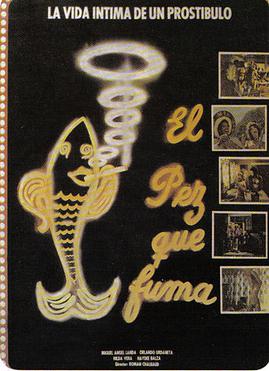
El Pez que Fuma is a 1977 Venezuelan film directed by Román Chalbaud. The film takes place in La Guaira, in the titular brothel. It is considered by many to represent a high point in Venezuelan cinema, and was made during the Golden Age of Venezuelan cinema.

The Goya Award for Best Actor is one of the Goya Awards, Spain's principal national film awards.
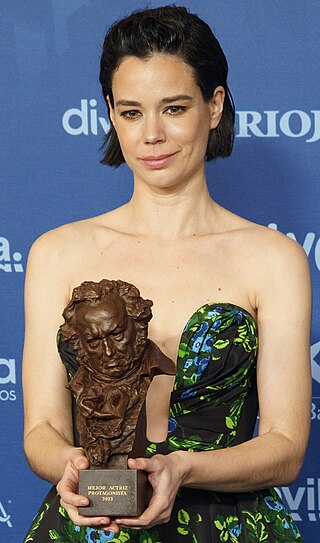
The Goya Award for Best Actress is one of the Goya Awards, Spain's principal national film awards.
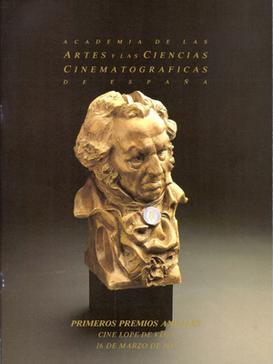
The 1st Goya Awards were presented at the Teatro Lope de Vega, Madrid on 17 March 1987, and was presented by Fernando Rey.
Samantha Castillo is a Venezuelan actress born in a small village near the capital Caracas. She has a degree in Performing Arts, graduated from the Central University of Venezuela and has been trained in different acting techniques, she also studied at the International Academy of Film and Television. She has been acting since she was 15. She has appeared in several stage productions and became popular with the film Pelo Malo, a film by Mariana Rondon, winner of "Golden Shell " at the San Sebastián International Film Festival. She also won the prize as best actress at Torino Film Festival 2013 where the jury president was Paolo Virzi. The Venezuelan Film Academy recognized her as the best leading actress in 2018.
Joseph Novoa is a Venezuelan-Uruguayan film director and executive producer. He is married to the director and scriptwriter Elia K. Schneider and fathered the film director Joel Novoa.

The Colombia–Venezuela border is an international border of 2219 kilometers (1378 mi) between Colombia and Venezuela, with a total of 603 milestones that demarcate the line. It is the longest border of both Colombia and Venezuela.
Hugo Restrepo is a Colombian film producer, cultural critic and writer, whose work has exerted a profound influence on Colombian Neorealism and modern intellectual history. His most notable films include Sumas y restas, Rodrigo D No Futuro, and La Vendedora de Rosas. The latter have received numerous international awards. Rodrigo D No Futuro, and La Vendedora de Rosas were amongst the first Colombian films to be featured at the Cannes Film Festival. The ideas and dialogues presented in his films have been immortalised as part of Colombian popular culture.
The Centro Nacional Autónomo de Cinematografía (CNAC) is the governing body of the Venezuelan cinema created by the Venezuelan government in 1993. It is responsible for selecting the films which will represent Venezuela in international film awards like the Academy Awards and Goya Awards. It is headquartered in Los Ruices, Caracas.

Song Without a Name is a 2019 drama film directed by Melina León. It was screened in the Directors' Fortnight section at the 2019 Cannes Film Festival. It was selected as the Peruvian entry for the Best International Feature Film at the 93rd Academy Awards, but it was not nominated. It is a co-production between Peru, Spain, Switzerland and the United States.

The 2021 Apure clashes started on 21 March 2021 in the south of the Páez Municipality, in the Apure state in Venezuela, specifically in La Victoria, a location bordering with Colombia, between guerrilla groups identified as Revolutionary Armed Forces of Colombia (FARC-EP) dissidents and the Venezuelan government led by Nicolás Maduro.
The Goya Award for Best Documentary is one of the Goya Awards, Spain's principal national film awards. The category was first presented at the sixteenth edition with José Luis Guerín's En construcción being the first winner.
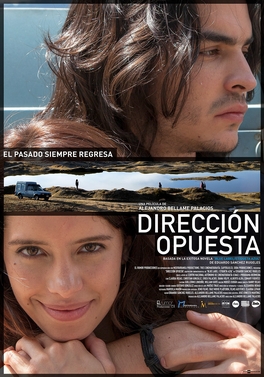
Opposite Direction is an Italian-Venezuelan film released in 2020, directed by Alejandro Bellame Palacios and starring Claudia Rojas, Christian González and Erick Palacios. It is based on the novel Blue Label by Eduardo Sánchez Rugeles. In the film "Eugenia, 30, is torn between fulfilling or not a promise she made 13 years ago to Luis, her brief and tragic adolescent love."
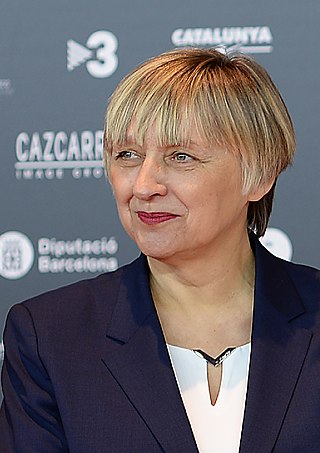
Teresa Font Guiteras is a Spanish film editor from Catalonia. She is a recurring collaborator in films directed by Imanol Uribe and Vicente Aranda.

Fortitude is a 2020 internationally co-produced drama film directed by Jorge Thielen Armand. It premiered in the Tiger Competition of the 49th International Film Festival Rotterdam. A co-production between Venezuela, Colombia, France and The Netherlands, the film premiered in Venezuelan cinemas on 23 December 2021.
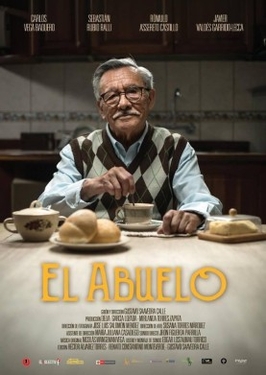
El Abuelo is a 2017 Peruvian-Colombian road comedy-drama film written and directed by Gustavo Saavedra Calle in his directorial debut. It stars Colombian Carlos Julio Vega along with the Peruvian actors Sebastian Rubio, Javier Valdés and Rómulo Assereto.













